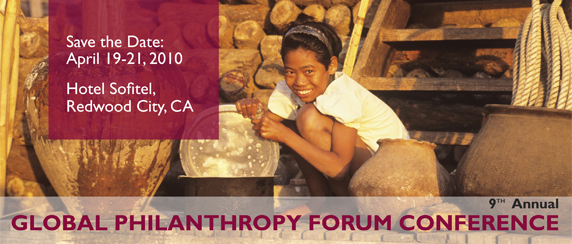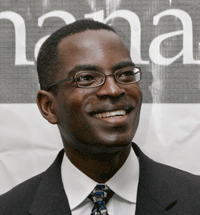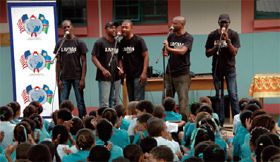Dispatch from the 2010 Global Philanthropy Forum
I’m just back from the ninth annual Global Philanthropy Forum in Redwood City, California.
GPF exemplifies a particular type of philanthropic spirit, tied to the mindset of Silicon Valley. It’s ambitious, can-do, and its view is global. The same part of the country that has sprouted Yahoo and Google out of garages and dorm rooms has been trying to tackle complex global issues.  GPF is one of the major watering holes at which these individuals discuss their successes and failures.
GPF is one of the major watering holes at which these individuals discuss their successes and failures.
This particular GPF meeting was impeded by the Icelandic volcano eruption, which stranded 60 participants and 20 presenters in the UK—a nice reminder of the unexpected challenges complex issues can provide. Luckily, there were plenty of experienced and emerging leaders who were able to take the panel spots of those who weren’t able to make it.
I have to admit that I find the Global Philanthropy Forum meetings challenging. On the one hand, the commitment, energy, and focus of the participants are very inspiring. Former Microsoft staffer, Patrick Awuah, Jr., spoke of going back to his native Ghana to establish Ashesi University, with the goal of promoting a spirit of inquiry and excellence.
The Indian organization Aravind, devoted to restoring sight to millions, received the Conrad Hilton Humanitarian Award.
There were continuous conversations, during sessions and into the night, about the challenges of strengthening health systems, providing clean water, and making microfinance programs succeed.
But another part of the Silicon Valley personality on display at GPF that I’m less comfortable with is its hype—particularly its focus on technology as the primary answer to the world’s problems.
For example, discussions abounded about the increasing importance of “virtual communities” made possible by advances in communication technology.
As someone who has worked in and on Africa for 25 years, I agree that the cell phone has made a fundamental difference in how people communicate, how they seek knowledge, and what they know about issues and their leaders. The cell phone is a force for change that many of Firelight’s partners are seeking to harness in their efforts to help vulnerable children and families.
But community in Africa is about more than communication—it is about reciprocal obligation. If I am a member of your community, you have some responsibility for my well-being, and I for yours. This reciprocity—the basis of Firelight’s work in Africa—is so far lacking in the virtual communities sprouting on the web.
Many of the discussions at GPF focused on what I’d call ‘public service product development’ (’helper apps’ as opposed to ’killer apps’). This is logical, as the spirit and ethos of Silicon Valley have also been about product development. During the conference, for example, Vodafone Americas Foundation and mHealth Alliance announced the three winners of their Wireless Innovation Challenge, organizations working on the safety of cooking stoves and the use of mobile phones both to deliver loans and to capture and deliver medical data.
As a responsive funder, Firelight is not focused on funding the development of a particular product or a ‘soft- or hardware solution’. We are trying to help organizations on the ground accomplish their own goals, and grow to the next level, as they see it.
Along these lines, Tim Brown of IDEO gave an interesting presentation on ‘design thinking for social innovation’. In his article on this concept in the Stanford Social Innovation Review, Brown notes that “time and again, initiatives falter because they are not based on the client’s or customer’s needs and have never been prototyped to solicit feedback.” He outlines one way in which paying close attention to what leaders and innovators at the grassroots are saying and doing can powerfully inform the design of better approaches.
The conference ended with a performance by the Namibian a capella group Vocal Motion 6, a five-man group with beautiful voices and intricate harmonies. The group unexpectedly sang The Star-Spangled Banner, which I’m more used to hearing at baseball games than at conferences working on international development. But it was a very moving performance, a sort of vocal gift, memorably and exotically rendered by an African group in recognition of all the energy, know-how, and good will the GPF has brought together.



